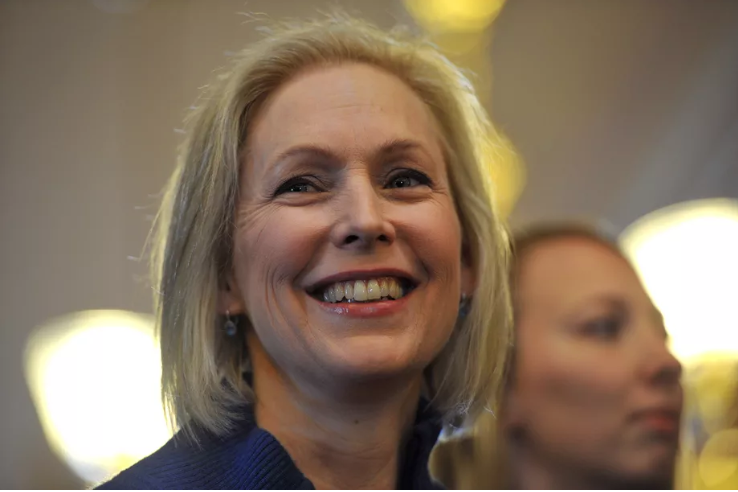
Will it be treated as a “big idea?”
Kirsten Gillibrand is making a perhaps not-unwise bet in an era dominated by Democratic women: that her paid family leave proposal can distinguish her in a crowded 2020 Democratic field.
“The American people want national paid leave. We even have a president who I agree with on basically nothing talking about the need for paid leave,” Gillibrand said during a Monday MSNBC town hall. “The best way to provide national paid leave is to make it an earned benefit.”
Gillibrand, alongside Rep. Rosa DeLauro, has reintroduced the FAMILY Act, a plan that would guarantee new parents and other caregivers 12 weeks of paid leave. She’s been talking about this idea for more than five years, and it’s one that would be especially helpful for lower-income families, who often don’t have jobs with paid maternity leave.
Economist Heather Boushey, a paid leave expert who served as a policy adviser for Hillary Clinton’s 2016 campaign, says the plan is a “big idea,” but the larger question is whether voters will treat it as one. During the 2016 campaign, paid family leave was a key plank of Clinton’s policy portfolio, but it wasn’t necessarily one of voters’ top issues.
“It wasn’t treated like the big idea that it is. What Hillary Clinton’s policy proposals would have done for women was absolutely revolutionary,” says Jess McIntosh, a Democratic strategist and former communications staffer for the Clinton campaign. “That needs to get at least as much air time as breaking up the banks, which is also very important.”
Of course, there’s always the problem of competing priorities. The national issue conversations in 2020 so far have focused on everything from reparations to Medicare-for-all — but it’s still early, and that could change.
“Supporting women and families is core to who Senator Gillibrand is, both as a mother and as a candidate,” Gillibrand spokesperson Evan Lukaske said in a statement. “Rewarding hard work with policies like paid family leave will be central to her candidacy and she’s excited to talk about it on the campaign trail.”











